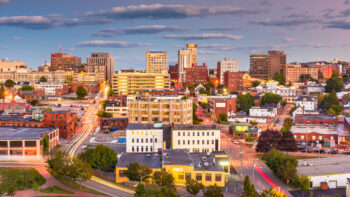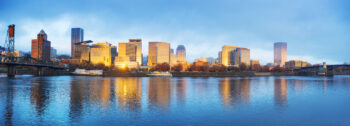
Do Land Rovers Need a Lot of Maintenance?
May 8, 2024Exploring Portland’s Outdoor Treasures: The Top Parks in Portland, OR
July 31, 2024Portland, Oregon, a city known for its vibrant culture, stunning landscapes, and progressive outlook, has a history as diverse and dynamic as its present. From its humble beginnings as a trading post to becoming a beacon of sustainability and creativity in the Pacific Northwest, Portland’s evolution is a fascinating tale of growth, resilience, and innovation.

The Early Years and Founding
Portland’s story begins long before its official founding. Native American tribes, particularly the Multnomah people, inhabited the region for thousands of years, drawn to the fertile land and abundant natural resources. In the early 19th century, the Lewis and Clark Expedition explored the area, paving the way for European-American settlers. In 1843, William Overton and Asa Lovejoy founded what would become Portland as a clearing in the dense forests along the Willamette River.
The Frontier Town
As Portland grew, it quickly became a hub for trade and commerce. The city’s strategic location on the Willamette River and its proximity to the Columbia River made it an ideal port for lumber and agricultural products. By the mid-19th century, Portland had established itself as a bustling frontier town, attracting pioneers, merchants, and adventurers seeking their fortunes in the Oregon Territory.
Industrial Expansion and Urban Development
The late 19th and early 20th centuries marked a period of rapid industrialization and urban development for Portland. The arrival of the transcontinental railroad in 1883 further cemented the city’s role as a major transportation and shipping hub. Industries such as timber, shipping, and manufacturing flourished, fueling population growth and transforming Portland into a bustling metropolis.
Challenges and Resilience
Like many cities, Portland faced challenges throughout its history. Economic downturns, labor disputes, and urban planning controversies tested the city’s resilience. However, Portlanders proved adaptable and forward-thinking, implementing progressive policies and initiatives that would shape the city’s future.
Cultural Renaissance and Innovation
In the latter half of the 20th century, Portland experienced a cultural renaissance that would redefine its identity. The city’s embrace of environmental sustainability, urban planning, and the arts attracted a new generation of residents and businesses. From the iconic Portland Saturday Market to the rise of the craft brewing industry, Portland became known for its creativity, innovation, and commitment to sustainability.
Modern Portland: Sustainability and Growth
Today, Portland stands as a model of sustainable urban living and economic diversity. The city continues to prioritize environmental stewardship, with initiatives focusing on renewable energy, public transportation, and green spaces. Its vibrant neighborhoods, thriving tech sector, and renowned cultural institutions attract visitors and new residents alike, ensuring that Portland’s legacy of innovation and progress will endure for generations to come.

Conclusion
Portland’s history is a testament to the spirit of exploration, resilience, and creativity that defines the Pacific Northwest. From its origins as a frontier trading post to its current status as a global leader in sustainability and culture, Portland has continually evolved while staying true to its pioneering roots. As the city looks towards the future, one thing remains certain: Portland will continue to inspire and captivate all who call it home.

